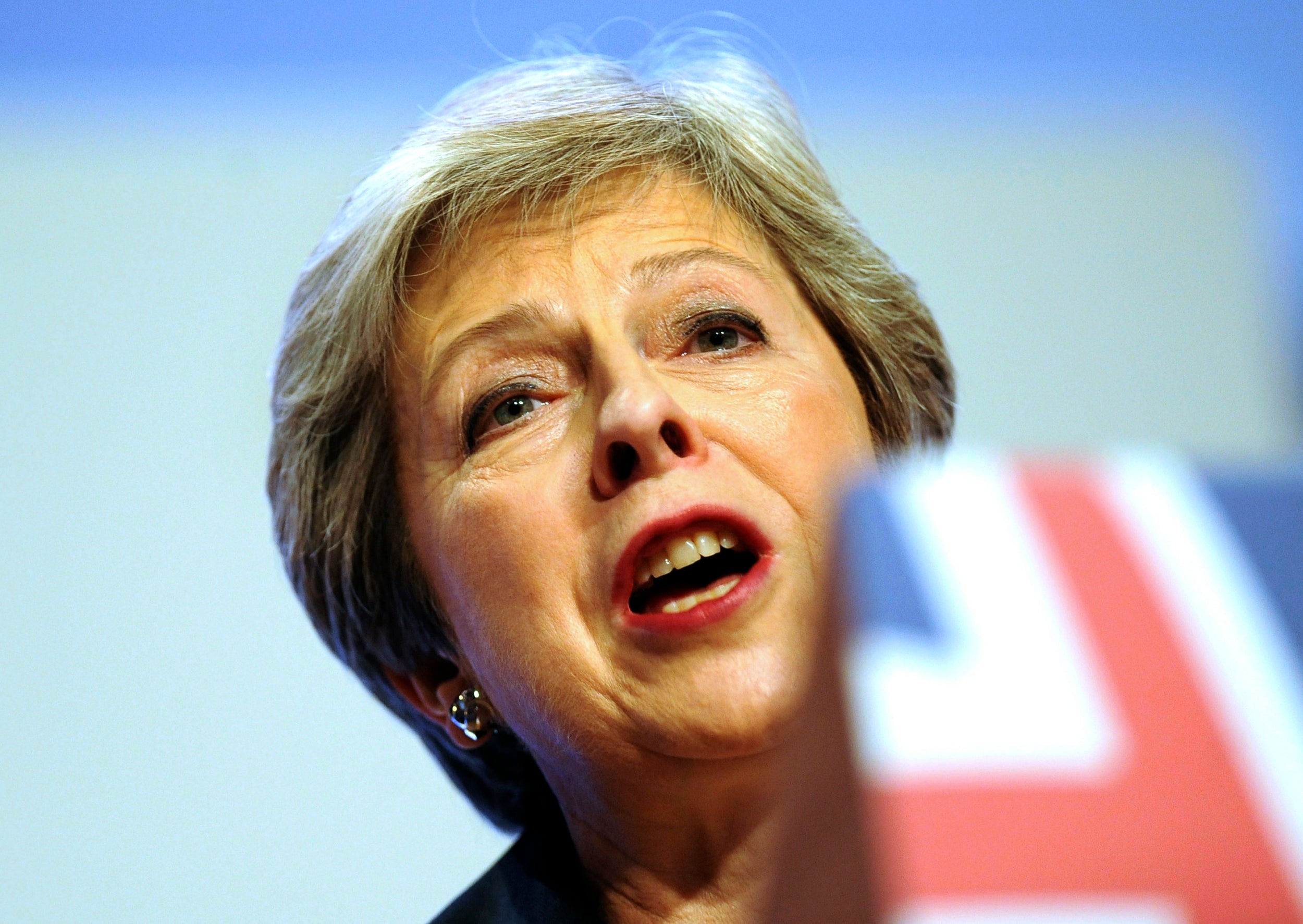Theresa May says we're about to see the end of austerity – but the numbers tell a very different story
Northamptonshire is already bankrupt; one in 10 local authorities is set to follow them into the abyss. We've already gone too far for May's announcement to make any difference


Five years ago, in a column for another newspaper, I wrote the following words: “If local government asked for one thing from [government], it was a removal of the cap on borrowing against its housing portfolio. Lifting this cap, bringing the UK in line with most other western democracies, would generate an estimated additional £20bn to invest in housing over five years.”
Sound familiar? Yesterday, half a decade after British councils began loudly and publicly telling the Conservative government exactly what they needed, the prime minister forced the Treasury to relent. Councils will finally be able to borrow against their assets in order to build new homes.
And, remarkably enough, the estimated £20bn that councils believe the policy will raise is exactly the figure required to plug the gaping financial hole exposed behind the government’s promise to build 330,000 new homes by the mid-2020s (just over five years away, funnily enough). Would you credit it?
Given the state of the country’s housing market and the perilous situation for renters at the bottom of that ladder – in particular, families with children trapped into short-term private sector tenancies held on properties of poor condition – this outbreak of common sense may trigger feelings of palpable relief. What it is not, be warned, is a sign of better things to come.
May’s big reveal, delivered in her leader’s speech at this week’s Conservative Party conference, came in a passage that promised that the worst was finally over for British people. Austerity, she claimed, had come to its natural end. Well, tell that to the town halls.

Councils will welcome the chance to finally get cracking on housing plans that have sat gathering whatever the digital equivalent of desk drawer dust may be for seven or more years. Some authorities are so prepared for this policy change that they have their lenders on speed-dial to sign off the capital and shovels ready to turn the first sod.
So the development directors will be happy this weekend; they will be able to bask in a sense of progress after years of frustration. Less so their colleagues down the hall in social care, waste, libraries, recreation – in fact, every other service that councils provide.
The prime minister’s loosening of borrowing rules doesn’t address the fact that town halls are quite literally going bankrupt as a result of her own policies, which have squeezed local government so hard – in half, in fact: grants from central government to councils reduced by 49 per cent between 2010-11 and 2018-19 – that it no longer exists in its previous form.
According to a National Audit Office report published in March, public services have been slashed to keep councils afloat and care work is only being carried out because councils are dipping into their reserves to fund it. The bins are being collected less frequently, libraries are closing their doors and vulnerable people are being left without support to safety and independently, all in the name of austerity.
May says this is the turning point, but councils beg to differ. They say the worst is yet to come. Northamptonshire is already effectively bankrupt; one in 10 local authorities is set to follow them into the abyss.
The prime minister says public spending per head is about to increase. According to careful analysis by the Resolution Foundation, that rise is driven entirely by increases in spending on debt interest and other areas of investment unrelated to the provision of public services to the people. In other words, in terms of tangibility, it’s increasing spending in name only. What good is that upward curve on a financial report if it is so utterly intangible to the average citizen?
This raises another question: why did the Conservatives wait so long to set councils free to borrow?
It’s another case of the political optics. In this Alice in Wonderland world, what a policy looks and sounds like matters more than what it achieves. As chancellor, George Osborne insisted that it was not the Tory way to borrow – even against stable assets such as property – out of a crisis. Now that’s exactly what May says it is right to do. The difference is that now, with her refreshed story about the end of austerity, she doesn’t mind what an additional £20bn debit on the public sector balance sheet looks like.
Nothing that Theresa May said this week changes the situation for councils. As Conservative peer Gary Porter, a longstanding council leader, remarked, town halls have already been “damaged beyond recognition” – a description that now, thanks to their retrenchment, also fits the state of the communities they serve.
Councils have been pushed out of the architecture of government due to austerity and yet are still, nonetheless, required to pick up the pieces of austerity. A little flexibility around the fiscal rule book can’t unpick that Gordian knot.
Join our commenting forum
Join thought-provoking conversations, follow other Independent readers and see their replies
Comments
Bookmark popover
Removed from bookmarks